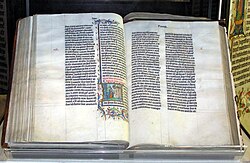
Back مسيحية تقدمية Arabic Progressiivinen kristillisyys Finnish Kristen progresif ID 진보 기독교 Korean Прогрессивное христианство Russian Progressiv kristendom Swedish Прогресивне християнство Ukrainian

Progressive Christianity represents a range of related perspectives in contemporary Christian theology and practice. It is a postmodern theological approach, which developed out of the liberal Christianity of the modern era,[1] although progressive Christians would claim that ideas relating Christianity to social justice are at the heart of the Christian message and stem from biblical themes. Integrating and moving beyond the Enlightenment concerns of liberalism, Progressive Christianity is a postliberal theological movement that, in the words of Reverend Roger Wolsey, "seeks to reform the faith via the insights of post-modernism and a reclaiming of the truth beyond the verifiable historicity and factuality of the passages in the Bible by affirming the truths within the stories that may not have actually happened."[1]
Progressive Christianity, as described by its adherents, is characterized by a willingness to question tradition, acceptance of human diversity, a strong emphasis on social justice and care for the poor and the oppressed, and environmental stewardship of the earth. Progressive Christians have a deep belief in the centrality of the instruction to "love one another" (John 15:17) within the teachings of Jesus Christ.[2] It is largely a western, Anglosphere movement, with ecumenical and cross-denominational currents and influences. It is particularly influential in mainline Protestantism, with some influence among liberal and Post-Vatican II Roman Catholicism (especially those influenced by movements such as liberation theology), and American evangelicalism, particularly the emerging Church and exvangelical movements, and the evangelical left.
| Part of a series on the |
| History of Christian theology |
|---|
 |
|
|
- ^ a b Wolsey, Roger (10 February 2012). "Progressive Christianity Isn't Progressive Politics". The Huffington Post. Retrieved 16 January 2023.
- ^ "Soul Play: What Is Progressive Christianity Exactly?". The Flip Side. University of Wisconsin – Eau Claire. Retrieved 23 December 2012.[dead link]
© MMXXIII Rich X Search. We shall prevail. All rights reserved. Rich X Search